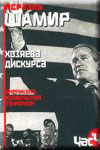When Will Americans Come to the Aid of Palestine?
Jeff Gates
July 21, 2009
Unless President Barack Obama resolves to expunge “special” from the U.S.-Israeli “special relationship,” this entangled alliance will continue to ensure that the U.S. is portrayed as guilty by its association with Tel Aviv’s thuggish behavior in Palestine and elsewhere. And by the U.S. insistence that Israel not be held accountable under international law.
On July 3rd, Israeli ambassador Michael Oren claimed “Iran nuke could wipe Israel off the map in seconds.” An accurate translation reveals that what the president of Iran proposes is that Zionism be “erased from the pages of history.” But why quibble over words and their intent when Israel’s intent is to create a consensus that ensures war with Iran?
Two days after Oren’s saber-rattling speech, Vice-President Joe Biden was asked in a televised interview whether the Obama Administration would restrain Israeli military action against Iran. President Obama was then out of the country. A self-proclaimed Zionist, Biden responded, “Israel can determine for itself—it’s a sovereign nation—what’s in their interest and what they decide to do relative to Iran and anyone else.” http://www.youtube. com/watch? v=yAZmO80dLfE
Unfamiliar with the refrain, “loose lips sink ships,” Biden’s cavalier comment evoked memories of Vice President Dick Cheney who routinely waited until his boss was out of town to make bellicose remarks that moved the U.S. steadily closer to war in Iraq.
Admiral Michael Mullen, chairman of the Pentagon’s Joint Chiefs of Staff, scrambled to offset the impression left by Biden’s comment. Astute strategists know it is the small impressions that, step-by-step, form the consensus beliefs that shape policy-making. It was the gradual drip, drip, drip of such impressions that created the (false) consensus belief that Iraq had WMD, ties to Al Qaeda and mobile biological weapons laboratories.
Pro-Israeli pundits quickly claimed that, with Biden’s comment, Washington had given Tel Aviv the green light to attack Iran. Mullen grabbed media attention to reconfirm the obvious: an attack on Iran could have “grave and unpredictable consequences.”
Arrogant, Aggressive and Above the Law
What has Israel done to quell these global jitters? Tel Aviv ordered a long-range Air Force exercise covering the same distance as from Israel to Iran. It dispatched through the Suez Canal a Dolphin class submarine, three of which are widely believed capable of launching a nuclear missile attack. And it sent a “message” to Iran by sailing two Saar class missile ships through the canal into the Red Sea, putting them within striking distance of Tehran.
Meanwhile, Rupert Murdoch’s Fox News played its usual supporting role by announcing Israeli Navy Prepares for Potential Attack on Iran's Nuclear Facilities. To date, Barack Obama has shown little inclination to say no to Tel Aviv and show he means it. Instead, his administration has staffed up with advisers who are disproportionately pro-Israeli—more so even than the Bush and Clinton presidencies.
When in February he failed to support the nomination of Ambassador Charles Freeman as Director of the National Intelligence Council, Obama served global notice of just how much influence Israel wields over U.S. foreign policy. Opposition to Freeman was led by Steven Rosen, a former executive of the American Israel Public Affairs Committee (AIPAC). Though you would never know it from reports in mainstream media, Rosen had been indicted under the Espionage Act for transferring to the Israeli embassy classified Pentagon intelligence on Iran.
Adding insult to the Freeman injury, Obama Attorney General Eric Holder approved the withdrawal of charges against Rosen and co-conspirator Keith Weissman, another AIPAC executive. After receiving a 12-year sentence for conceding his complicity, Pentagon Iran analyst Lawrence Franklin saw his sentence reduced to time served under house arrest and was ordered to perform 100 hours of community service. So much for accountability.
Just as he said not a word on Gaza, Obama remained silent on Freeman. Left to twist in the wind by the commander in chief, Freeman withdrew his nomination. When he vowed not to remain silent in his critique of the Israel lobby, Washington Post editors denied there was such a lobby, dismissed his critique as a “conspiracy theory” and attacked his comments as a “crackpot tirade.”
Though AIPAC avowed it took no stand on the appointment, reports confirm it leaned on key senators and later boasted that Obama was a “pushover.” In a fiery rejoinder to his critics, Freeman noted, “This is not just a tragedy for Israelis and their neighbors in the Middle East; it is doing widening damage to the national security of the United States.”
Palestinians are correct to wonder how Americans could be so unresponsive to their abuse at the hands of a U.S. ally. What those in the Middle East fail to grasp is that Americans do not know. How could they? Mainstream media is dominated by pro-Israelis and the Israeli lobby politically dominates U.S. foreign policy in the region. http://criminalstat e.com/blog/ ?p=99
Freeman was correct in the mid-1990s when he described the lobby’s “virtual hammerlock on American foreign policy.” The only difference now is that Israeli influence has grown far more systemic. An admirer of Israel, Freeman cautions: “Right now it is doing itself in and taking us with it.” By seeking to induce the U.S. to wage war in Iran, Tel Aviv confirms its agenda has little to do with U.S. interests and everything to do with its expansionist goals for the region.
Self-censorship in both politics and media precludes Americans from knowing the perils that accompany the U.S.-Israeli relationship. Nor do Americans know the horrors that this alliance has imposed on Palestinians. Activist Alison Weir dedicated an aptly named website to educating Americans: If Americans Knew. http://www.ifameric ansknew.org/
Those who know are rarities. Those who know and criticize Israeli policy are routinely smeared with the toxic charge of anti-Semitism. Following Israel’s assault on Gaza, a high profile intimidation campaign against an academic critic at the University of California worked its intended silencing effect on academic critics nationwide. http://criminalstat e.com/blog/ ?p=94
The behavior of this extremist nationalist enclave thrives in darkness, a condition that aptly describes U.S. media coverage of conditions in Palestine. Steadily more Americans are working to make Israel’s thuggish conduct transparent but the numbers are few and the challenges great.
The U.S. is branded abroad as a nation governed on the basis of informed consent. Yet pro-Israelis maintain a virtual lockdown on information and debate on Israel. The fight for Palestine must be waged and won in the U.S. where the appeasement of Israel relies on a lack of knowledge. If Americans knew, their support would be withdrawn. The U.S.-Israeli relationship will remain “special” only so long as Zionism can continue to operate in the shadows.
How the Israel Lobby Took Control of U.S. Foreign Policy
by Jeff Gates
In the early 1960s, Senator William J. Fulbright fought to force the American Zionist Council to register as agents of a foreign government. The Council eluded registration by reorganizing as the American Israel Public Affairs Committee. AIPAC has since become what Fulbright most feared: a foreign agent dominating American foreign policy while disguised as a domestic lobby.
Israelis and pro-Israelis object when they hear that charge. How, they ask, can we so few wield such influence over so many? Answer: it’s all in the math. And in the single-issue advocacy brought to bear on U.S. policy-making by dozens of ‘domestic’ organizations that now compose the Israel lobby, with AIPAC its most visible force.
The political math was enabled by Senator John McCain whose support for all things Israeli ensured him the GOP nomination to succeed Christian-Zionist G.W. Bush. McCain’s style of campaign finance reform proved a perfect fit for the Diaspora-based fundraising on which the lobby relies. Co-sponsored by Senator Russ Feingold of Wisconsin, this change in federal election law typifies how Israeli influence became systemic.
‘McCain-Feingold’ raised the amount (from $1,000 to $2,300) that candidates can receive from individuals in primary and general elections. A couple can now contribute a combined $9,200 to federal candidates: $4,600 in each of the primary and general elections. Primary elections, usuall low-budget, are particularly easy to sway.
Importantly for the Diaspora, this change also doubled the funds candidates can receive without regard to where those contributors reside. A candidate in Iowa, say, may have only a few pro-Israeli constituents. When campaign support is provided by a nationwide network of pro-Israelis, that candidate can more easily be persuaded to support policies sought by Tel Aviv.
Diaspora-based fundraising has long been used by the lobby with force-multiplying success to shape U.S. foreign policy. Under the guise of reform, John McCain doubled the financial resources that the lobby can deploy to elect and retain its supporters.
Fulbright was Right
The influence-peddling process works like this. Candidates are summoned for in-depth AIPAC interviews. Those found sufficiently committed to Israel’s agenda are provided a list of donors likely to “max out” their campaign contributions. Or the process can be made even easier when AIPAC-approved candidates are given the name of a “bundler.”
Bundlers raise funds from the Diaspora and bundle those contributions to present them to the candidate. No quid pro quo need be mentioned. After McCain-Feingold became law in 2003, AIPAC-identified bundlers could raise $1 million-plus for AIPAC-approved candidates simply by contacting ten like-minded supporters. Here’s the math:
The bundler and spouse “max out” for $9,200 and call ten others, say in Manhattan, Miami, and Beverly Hills. Each of them max out ($10 x $9,200) and call ten others for a total of 11. [111 x $9,200 = $1,021,200.]
Imagine the incentive to do well in the AIPAC interview. One call from the lobby and a candidate can collect enough cash to mount a credible campaign in most Congressional districts. From Tel Aviv’s perspective, that political leverage is leveraged yet again because fewer than ten percent of the 435 House races are competitive in any election cycle (typically 35 to 50).
Additional force-multipliers come from: (a) sustaining this financial focus over multiple cycles, (b) using funds to gain and retain seniority for those serving on Congressional committees key to promoting Israeli goals, and (c) opposing any candidate who question those goals.
Jewish Achievement reports that 42% of the largest political donors to the 2000 election cycle were Jewish, including four of the top five. That compares to less than 2% of Americans who are Jewish. Of the Forbes 400 richest Americans, 25% are Jewish according to Michael Steinhardt, a key funder of the Democratic Leadership Council. The DLC was led by Jewish Zionist Senator Joe Lieberman when he resigned in 2000 to run as vice president with pro-Israeli presidential candidate Al Gore.
Money was never a constraint. Pro-Israeli donors were limited only by how much they could lawfully contribute to AIPAC-screened candidates. McCain-Feingold raised a key limit. The full impact of this foreign influence has yet to be tallied. What’s known, however, is sufficient to apply the Foreign Agents Registration Act. Of the top 50 neoconservatives who advocated war in Iraq, 26 were Jewish (52%).
Harry Truman, a Christian Zionist, remains one of the more notable recipients of funds. In 1948, he was trailing badly in the polls and in fundraising. His prospects brightened dramatically in May after he recognized as a legitimate state an enclave of Jewish extremists who originally planned to settle in Argentina before putting their sights on Palestine.
That recognition was opposed by Secretary of State George C. Marshall, the Joint Chiefs of Staff, the bulk of the diplomatic corps, the fledgling Central Intelligence Agency and numerous distinguished Americans, including moderate and secular Jews concerned at the troubles that were certain to follow. Not until 1984 was it revealed that a network of Jewish Zionists had funded Truman’s campaign by financially refueling his whistle-stop campaign train with $400,000 in cash ($3 million in 2009 dollars).
To buy time on the public’s airwaves, money raised from the Israel lobby’s network is paid to media outlets largely owned or managed by members of the same network. Presidents, Senators and Congressmen come and go but those who collect the checks rack up the favors that amass lasting political influence.
The U.S. system of government is meant to ensure that members of the House represent the concerns of Americans who reside in Congressional districts—not a nationally dispersed network (a Diaspora) committed to advancing the agenda of a foreign nation. Federal elections are meant to hold Senators accountable to constituents who reside in the states they represent—not out-of-state residents or a foreign government.
In practical effect, McCain-Feingold hastened a retreat from representative government by granting a nationwide network of foreign agents disproportionate influence over elections in every state and Congressional district. Campaign finance ‘reform’ enabled this network to amass even more political clout—wielding influence disproportionate to their numbers, indifferent to their place of residence and often contrary to America’s interests.
This force-multiplier is now wielded in plain sight, with impunity and under cover of free speech, free elections, free press and even the freedom of religion. Therein lies the perils of an entangled alliance that induced the U.S. to invade Iraq and now seeks war with Iran. By allowing foreign agents to operate as a domestic lobby, the U.S. was induced to confuse Zionist interests with its own.






















